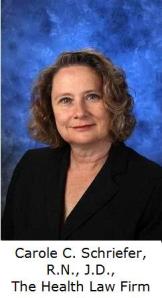Drug Quality and Security Act Boosts FDA Regulations Over Compounding Pharmacies
 By Lance O. Leider, J.D., The Health Law Firm
By Lance O. Leider, J.D., The Health Law Firm
On November 18, 2013, the United States Senate voted to increase federal oversight of compounding pharmacies that produce large volumes of mixed drugs. This bill comes in the wake of last year’s meningitis outbreak stemming from unsanitary conditions at the New England Compounding Center (NECC). Click here to read a previous blog on the meningitis outbreak.
This bill does not give the U.S. Food and Drug Administration (FDA) absolute authority over compounders, but creates significant safeguards.
This particular piece of legislation passed the House of Representatives in September of 2013, passed in the Senate in November 2013, and President Obama […]





